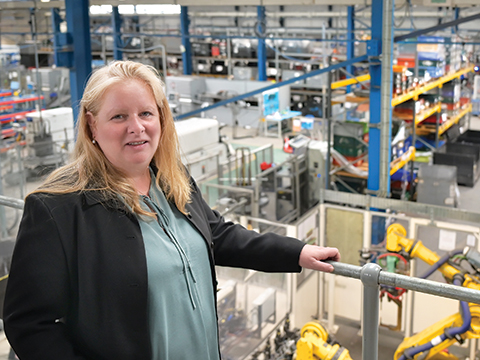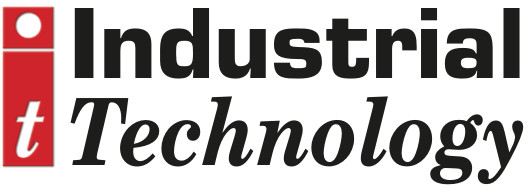
Posted to News on 23rd May 2025, 09:00
Tenacity, honesty and self-belief underpin acceptance and business growth
Ahead of International Women in Engineering Day in June, Emma Burgon, engineering director at William Hughes, explains her experiences as an eighth-generation Hughes and her trials, tribulations, and triumphs in her journey to the top of what is a very traditional but vital industry sector.

There are many unsung commodity-component' heroes in the world of engineering. Some fall by the wayside over time, but others remain, delivering sterling service in just about any discipline you care to mention.
The humble spring is a case in point. Granted they are not the most glamourous engineering component, but they are arguably on a par with bearings in terms of their importance to every facet of motive technology - both traditional and cutting edge.
When you witness the amount of engineering that goes into even the most basic spring - in terms of materials science, dynamics, prototyping and proving - it's actually quite humbling, even more so when you consider they are often specified so (read: too) late in the design process. Never take even the most basic engineering component for granted! Without springs, the world would be a lot more complicated and far less mechanically subtle.
Emma Burgon, engineering director at William Hughes, has a task on her hands. How do you make a very traditional product and company relevant to the demands of modern engineering practices? Hard work, experience, tenacity and the ability to remain completely honest with yourself have paid dividends for Emma as she grows the company and looks to exploit new business opportunities.
William Hughes exclaims on its website We thrive in making things that shape our world; and who are we to argue? For over two hundred years, the company has been at the forefront of the UK's wire industry. From its humble beginnings in London, the company is now a global supplier of components to the automotive, aerospace and medical industries, to name a few, and now has major manufacturing facilities in the UK, Poland and Bulgaria.
So where does Emma fit into all of this? In the first instance she is keen to explain: I don't see myself as a woman in engineering, I am simply a person with a job to do. Gender aside, young men face the same pressures I did as an apprentice I was not immune from the ribbing.
Can you give us an idea of your family, background, and qualifications?
I am eighth generation owner manager of William Hughes. My father did a Mechanical Engineering degree at Bath University and I followed suit, getting mine from Swansea. He got 2:2 and I got a 2:1, which left me open to the inevitable claims that his was the better university. I also met my husband at university, he was on the same Mech. Eng. Course. We graduated together and he now works in the business as a key account manager.
Following my graduation, I worked in Germany for six months for a machine building company, constructing milling and turning equipment. It was a very interesting baptism. At the time, in Southern Germany, the Bavarians had a very relaxed culture - smoking and beer on the shop floor was very common and the flexitime was horrifically abused. Indeed, it was my experiences there that made me swear never to have flexitime in any factory I managed.
The factory culture was very similar and there was a lot of similarity in engineering terms, but the level of investment between Germany and the UK was already apparent - the UK simply lacks the levels that German manufacturing enjoys. The UK is still living off investments made in the 50s and 60s and there is not much respect for manufacturing. It is deemed a tiny part of the economy and therefore not important. Germany as a nation is a product of its engineering industry. We were too, to a certain degree, but now the service industry has taken over. The UK certainly has the knowhow, just not the funds to back it up, which is a shame considering our pedigree in what has been a hugely influential part of our history.
Following my Bavarian adventures, I joined William Hughes in the welding department. Three months later I moved into the design office, where I had my first major triumph. There was a new machine that needed building, within a four-month deadline. For a purpose-built automated wire-bending machine this was interestingly tight. Following the successful management of this project, I was tasked with taking over the design department and toolroom.
What do you say to people who mention nepotism?
That's life. Yes, I am very lucky to have had the start in life that I had and to have had a business handed to me. But luck is what you make of it. The business when I started was unprofitable and going nowhere. We are now more than 10 times the size with three manufacturing sites in Europe, employing 550 people and doing OK.
My father said that family members would always have a job, all they had to do was clock on and earn their wages. After that we had to prove that we could do the next stage. He always said managers were not appointed, they just managed. If they did OK, then they got the job. I really wanted to earn the job - not just walk into it simply because I am the boss's daughter.
In my university holidays I worked on the production lines, which gave me an appreciation of the work I now expect others to undertake. You very soon get an idea of the roles that people are more suited to doing. I often find that men cannot do repetitive jobs for very long before needing a break/coffee/cigarette. Women on the other hand have this ability to switch off, which makes them so much more suited to some of our assembly operations.
I could write a whole essay on the subject of women versus men. There are loads of things that women are better at then men and vice versa. But when all is said and done, the better working environments are when you have a mixture. Any department that I have that is all men or all women causes me an issue.
Did you always think about becoming an engineer - what made you go for it
I was an avid watcher of LA Law and was going to be a barrister. But I have always enjoyed maths and eventually chose all my school subjects with an eye on doing engineering at a higher level. When I was little it was always said that my younger brother would take over the business one day. My mother would joke that when she had me, my father's first child, she said, Oh no, have I got to do this again? as it was perceived that her job was to provide a male Hughes to carry on the business. I never really thought about it too much; but as time went on it became clear that it was much better suited to me than my brother. Not that my younger brother was not successful, he now owns and operates a popular co-living habitation in a ski resort in Bulgaria.
Do/did you have any role models?
Obviously, my father. Other than that, not really. I am very lucky to have grown up in a world where women can do whatever they want without many barriers. Obviously, there are still some hurdles, but these can be mostly overcome in this day and age. I like to think that women have now taken over the world as I always joke to my family, whenever we see a woman in charge or doing a job previously done by men.
Have you faced resistance and, if so, how did you deal with it?
When I started there was quite a bit of resistance from blokes is the factory. Massive amounts of the inevitable who do you think you are? and a degree doesn't teach you anything useful. I also found early on that people felt really uncomfortable because they thought they shouldn't swear in front of me. So, I started to swear and very quickly learnt that there is a right and wrong time for this; but on the factory floor it massively puts people at their ease, and they started to relax. I am slightly ashamed to say that one of my proudest moments was when someone swore, and another said Oooh, ladies present which was immediately followed from elsewhere by Oh, don't worry about her, she's an honorary bloke!
Shop floor cussing aside, employee dynamics are essential. Some people can be very destructive and upset the status quo, while others bring calm to a situation. We are incredibly fortunate at William Hughes that we have a superb working environment. We have some employees who have been with us for 45+ years and our average employee turnover is 12 years! We even have four generations of the same family working for us. There are not many companies that can boast that.
What influence did your father have?
I was in awe of my dad's ability to change the business to meet the market's needs. He changed as the business changed and has evolved as business practices evolve.
When I first joined, it was all very loud and almost hostile, with regular shouting matches across and between the offices. I was really shocked by the management style. It was 100% men and to me it sounded like World War 3 had broken out every time they spoke. Their communication style was pure aggression.
It took me a while to realise that they could be really aggressive one minute and laughing and joking the next and that nothing that was said in this assertive style was actually aggression. One of the more seasoned employees explained to me that they didn't mean it nastily when they shouted, but it still took me a while to get used to it and a while to have the courage to join in. I did not want to be a rabbit caught in headlights.
I've seen women in the face of an aggressive and assertive boss just stay quiet. But sometimes an assertive boss needs to be told to shut up. I call it the God complex when you have got no one with courage to criticise you, you develop a modicum of self-perceived omnipotence. I am pleased to say that the factory operates totally differently today. There is no shouting and screaming but there is a lot of laughter.
What does your average day comprise?
Reading emails!! I get 400 to 600 a day. I am thinking of banning them, or at the very least writing a presentation on email etiquette, when to reply to all' and - something that really annoys me - when not to send emails that just say Thanks'. These in particular should be eradicated from the face of the earth once and for all!
From a role perspective, my father tends to run the financial side of the business and we have plant managers for the three plants that run the day-to-day operations. I manage the commercial/projects side of things, the design office and toolroom as well as HR.
What's the best thing about your job? What are the challenges?
Without a shadow of doubt, the best bit is winning a deal and buying machines. On the flip side, I am not a huge fan of ruthless customers, but it is a game you have to play - it just always seems to be all about money and price. But my advice is you always have to be ready and able to simply walk away. And I've stuck with this mantra. It may have slowed our pace a little, but we're still here.
Hard business can get you down, but I recently went on a week-long negotiation course and came away much more positive about human nature, armed with the overriding message that honesty is best. It reassured me that our approach was correct. My father said the worst thing you can do is sell a lie, which is a core morality in everything he does. Maybe if I was more ruthless we would be more successful. But that is not why we are here. Our mission is to be here tomorrow, employing people and with an eye on handing the company down to the next generation.
What do you think makes an ideal engineer/employee?
An ability to think three dimensionally. A willingness to give it a go. Be prepared to get your hands dirty and when you have a problem remember that there is a solution you just haven't found it yet, but you will.
My two top priorities for an employee are 1. Turn up every day, as someone who is not here is worse than useless; and 2. Be cheerful! I have to work with you every day. Someone who is miserable and moans about everything can be really wearing. If you have those two traits covered we can find a job for you! At the end of the day, a factory has a job for everyone, from the floor sweeper to the financial director. We have had people with downs syndrome working for us and our Bulgarian factory manager has no formal qualifications, but they have proved they can do the job, which is why they work for us!
Finally, is it true what they say about women and effective multitasking?
It's very true! My brother always says he can tell when I am doing other things while on a phone call, hopefully others can't. In fact, while we have been doing this interview, I have ordered some new grinding wheels and written the first draft of a letter to my accountant.
Point proven!!






